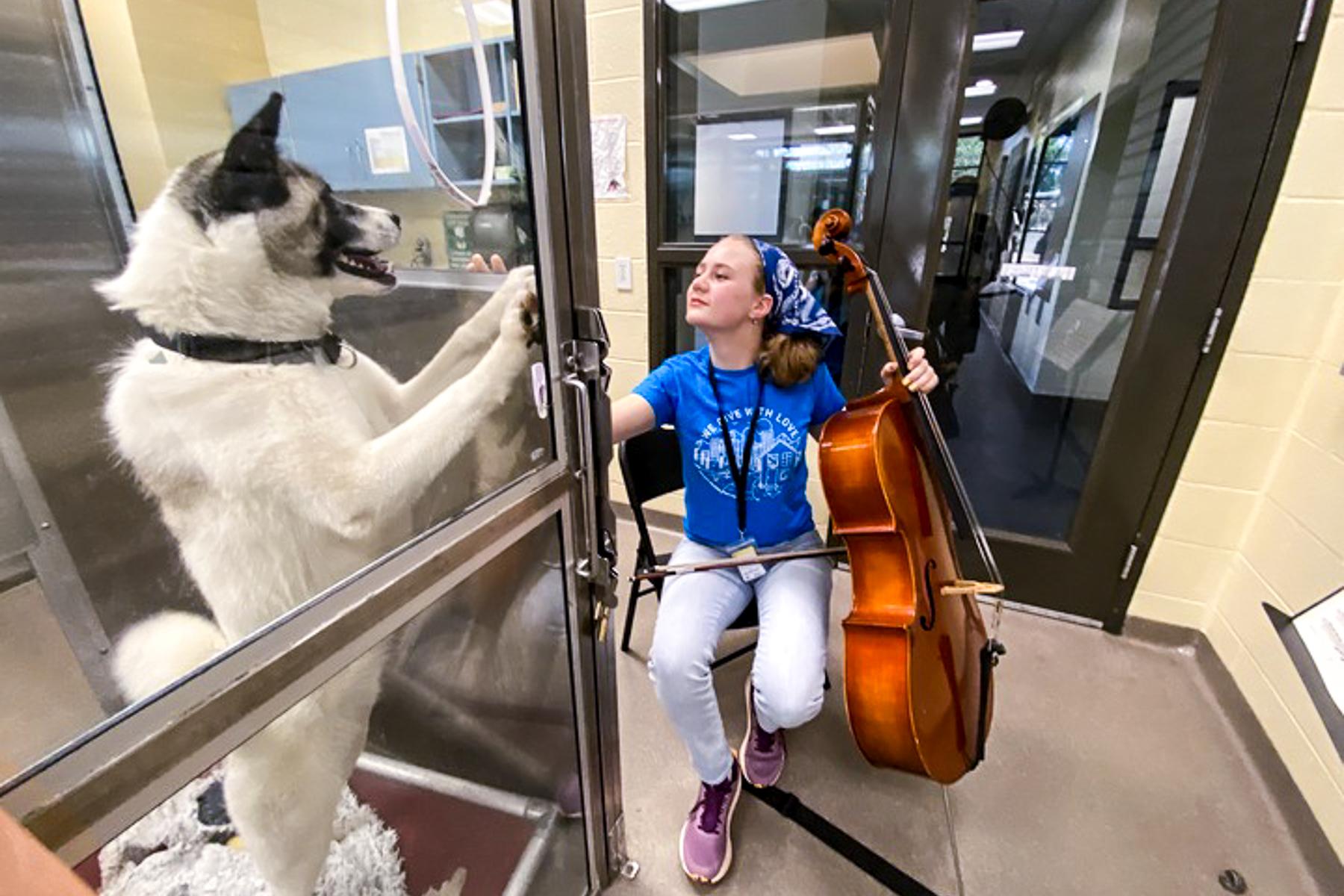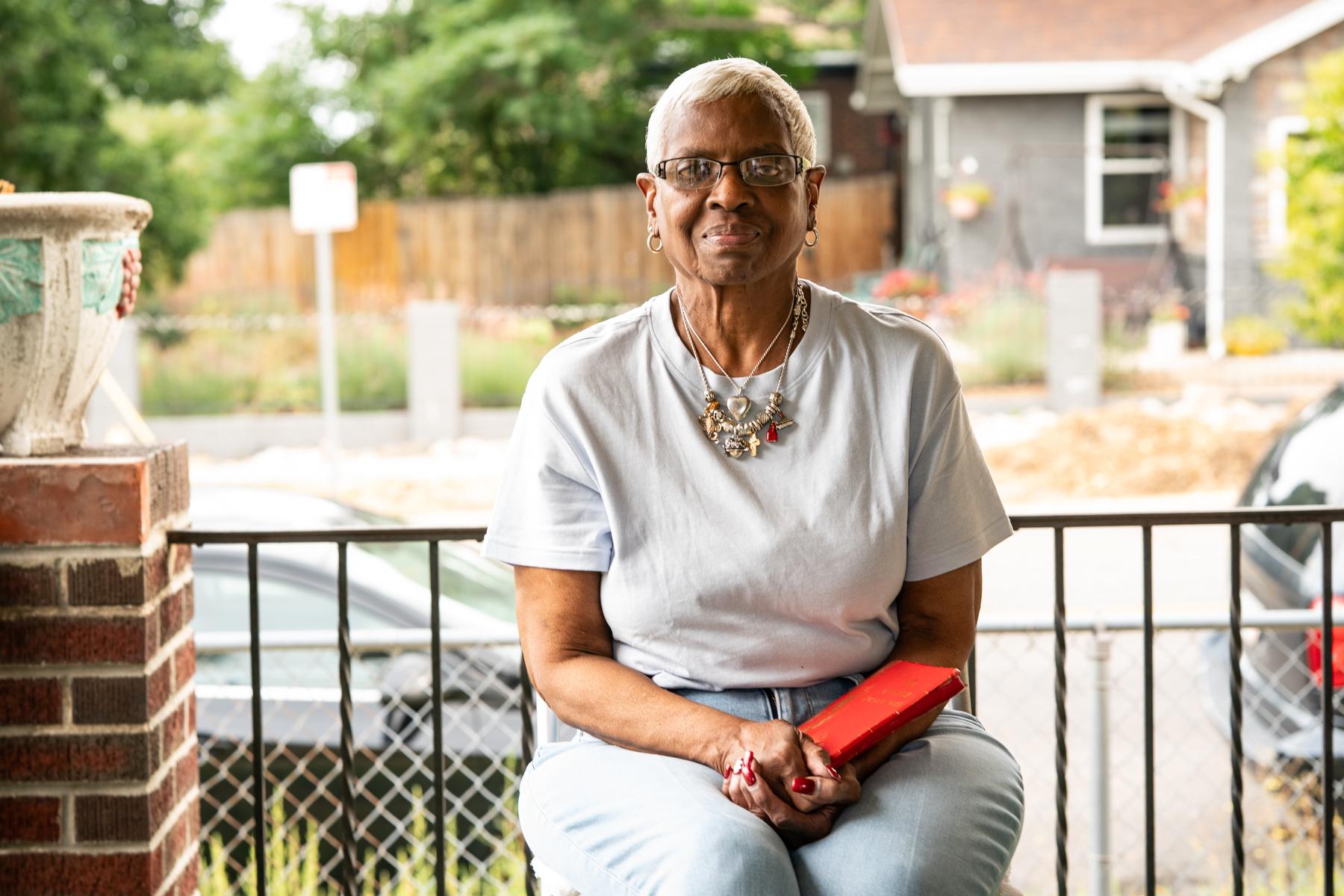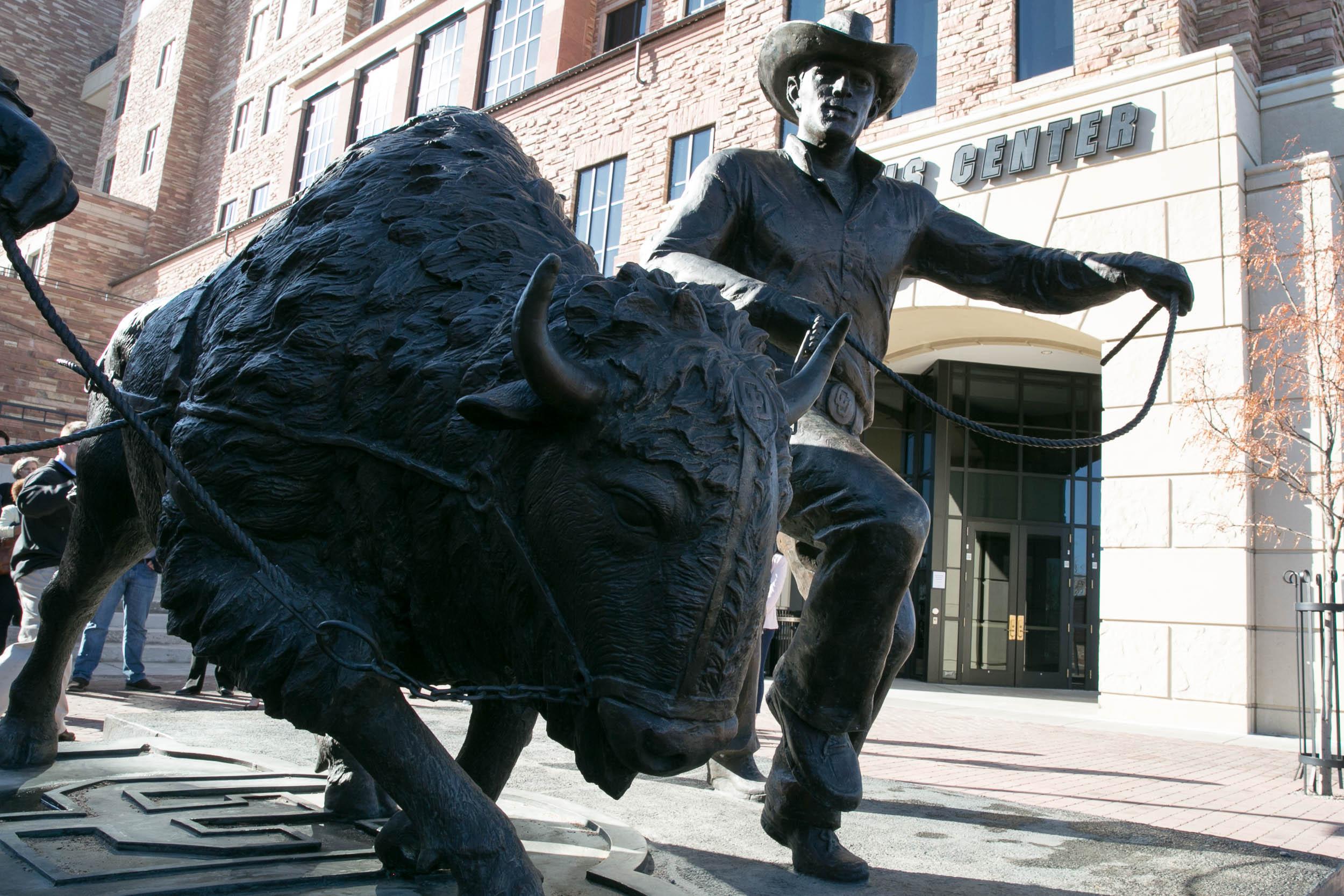
Peter Curtis has been a fan of the University of Colorado Buffaloes since he was 8. He was 12 when the team won its first, and only, national championship in 1991.
“I remember that game vividly, and I remember just the elation of kids in our neighborhood that were just screaming and running around outside after the game ended,” said Curtis, who grew up in Littleton. “My hands were tied. I was a Buff immediately after that for life.”
As fans pack Folsom Field for tonight's University of Colorado football kickoff against Georgia Tech, Curtis and others will be watching the school's first athletes getting paid like pros in amounts that far exceed their educational scholarships.
On July 1, schools across the country gained the ability to spend up to $20.5 million this year, sharing revenue with student athletes as part of the House v. NCAA settlement. It’s called NIL money — name, image and likeness. The settlement will also provide $2.8 billion from the NCAA and its power conferences over 10 years to Division I athletes who competed from 2016 to the present.
At CU, Athletic Director Rick George has spent over a year working to prepare the school for the new era of college athletics ushered in by House. It has left George searching for new money, cutting expenses, and having to balance competition with equity.
More money (for athletes), more problems (for schools)
After years of irrelevance that culminated in 2022’s 1-11 season, CU football has become a national brand led by head coach Deion Sanders, whom George hired to coach starting in 2023. When Sanders came to Boulder, he brought a major economic boon. The athletics department saw record revenue and football ticket sales in Sanders’ first season. The university has also seen an increase in applications and enrollment numbers, with school officials giving some of the credit to Sanders.
But the athletic department also set a record for expenses in its 2024 fiscal year. That came before raises for Sanders — who will earn $10 million this year — and another coach who will get $1.7 million, along with the $20.5 million it plans to distribute to athletes.
"We've got to find revenue streams that we may not have today," George said at a 2024 news conference. "(But) you can't do it all in revenue generation. You've got to make some cuts in your expenditures, and we will certainly be looking at all of that.”
The school has made a range of changes in search of that money. The Board of Regents raised the athletics fee that all undergraduate students pay from $28.50 to $90 in April. Money from the increase is planned to go towards women's sports scholarships and non-revenue sports — those that don’t make the university money. Additionally, concessions at Folsom Field will now give fans a “round up” option to support athletic scholarships.
CU Athletics has also brought all its fundraising in-house and, in June, announced a partnership with the sports marketing agency Two Circles to create Buffs Premier, a subscription-based fan loyalty program.
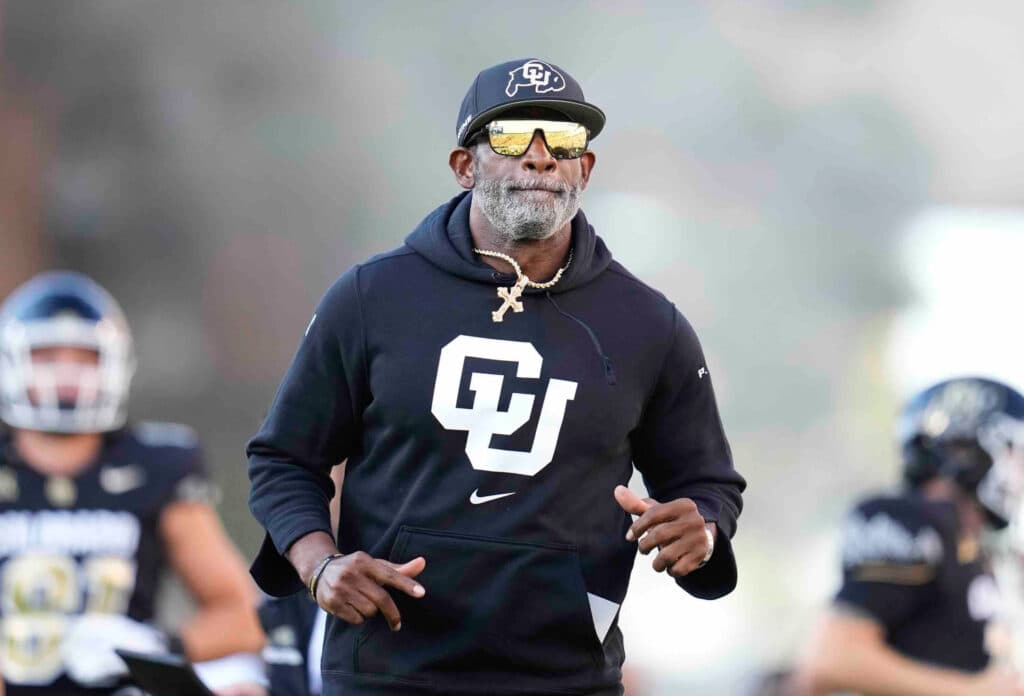
According to the contract obtained by CPR News via an open records request, Two Circles and CU will split net profit 50/50. The marketing agency will operate the program, with CU providing data records and access to marketing resources. With three tiers of subscriptions, between $39.99 and $99.99 a month, fans will get access to a range of benefits that include exclusive content and virtual meet and greets with student athletes.
Athletes who enter a revenue-sharing contract with the university — which CPR News obtained a generic copy of — will allow the university to use their name, image and likeness. They will also serve as independent contractors providing services like content creation for marketing purposes, according to CU Athletics spokesman Steve Hurlbert.
Colorado State University Athletic Director John Weber has said CSU will participate in revenue sharing, but it's unclear the amount they will pay athletes. The Rocky Mountain Collegian student newspaper reported that the number could be as low as $4 million this year. CSU Athletics did not respond to a request for comment.
Equity questions on the money remain
A Division I softball scholarship helped Jamie Skerski earn a college degree. That experience contributed to the CU professor’s path to academia, where her research areas include gender, sports and culture. As someone who benefited from Title IX, a federal civil rights law that bans sex-based discrimination in schools, she is concerned about the effect the House settlement will have on women's sports.
“I don't have a problem with the revenue sharing, but there's no mandate to make the funds equitable in any way, and what tends to happen is that they just simply reinforce the inequities,” Skerski said.
Guidance released in the final days of the Biden Administration said Title IX would apply to the House Settlement, but the Trump administration reversed that decision in February. The 1972 law requires equal participation in sports for women, along with scholarships, facilities and coaching staff proportional to men's sports.
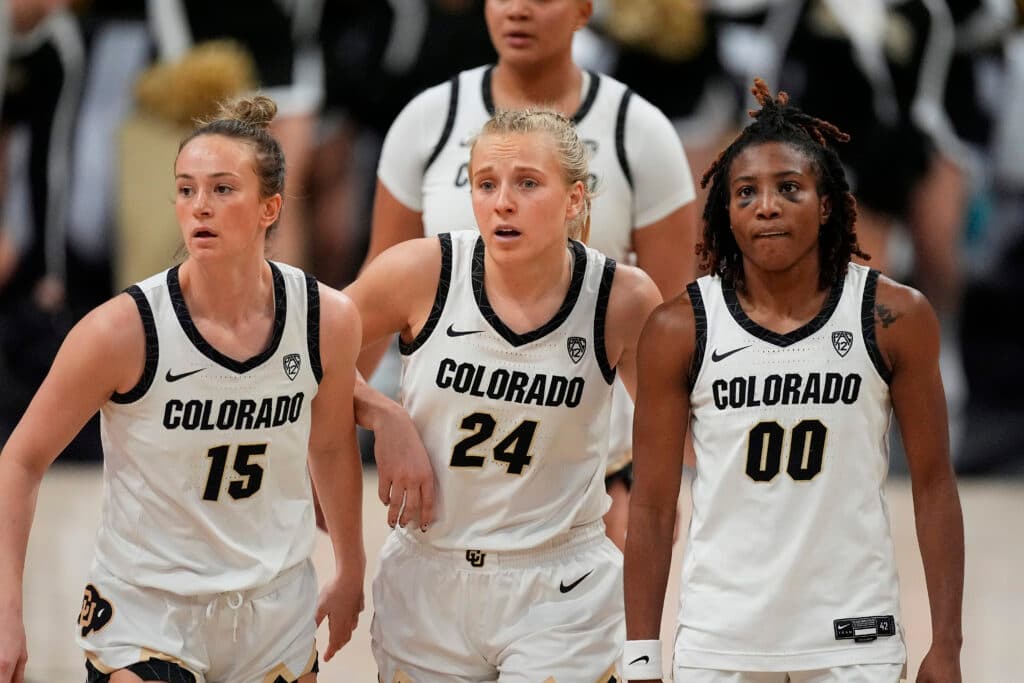
Without any such requirement that Title IX apply to the NIL money, Skerski believes that as much as 95 percent of revenue-sharing funds could end up going to football and men's basketball programs.
“Here’s a moment where there's an opportunity to address things that have just lopsided in favor of cementing the dominance of men's sports, and this is just going to actually make it worse,” she said.
At CU, George said every athlete will have the opportunity to participate in revenue sharing and that each athletic sport will receive a NIL revenue budget that is proportional to the revenue the sport generates.
Of the nearly $35 million CU made in ticket sales last year, over $31 million came directly from football. The team also earned $8.8 million from Big 12 postseason bowl game earnings and $12.3 million from media rights. Only three other teams, men's and women's basketball, along with volleyball, broke $100,000 in ticket sales. But Skerski believes that expenses also need to be considered in the conversation. Football teams bring in a lot of revenue, she says, but they also often spend the most money.
Under a Colorado Law signed in March legalizing school NIL payments, individual athlete contracts are exempted from the Colorado Open Records Act. While being debated by the state legislature, the bill faced bipartisan concerns, with opponents arguing that without transparency, there would be no accountability in preventing things like discrimination. Gov. Jared Polis expressed concerns over the transparency issues when he signed the bill into law. State law will require schools, however, to file an annual report showing how NIL funds are being divided between each sport.
Across the country, some schools have cut entire Olympic sports teams to free up funds for NIL. George said that there are no plans to cut any funding, staff or entire Olympic sport programs at CU. In June, two longtime assistant track and field coaches at Colorado had their positions eliminated, but Hurlbert said the move was part of a larger reorganization of the team.
“This reorganization was made to ensure that we are fulfilling our Title IX responsibilities while shifting our focus to distance and cross-country, which has historically been a national power,” Hurlbert said.
The amount schools can spend on NIL is expected to increase in the coming years, and George intends to continue distributing the maximum amount. To do so, he’ll continue to need to find more revenue, more savings or both. Curtis, who donates to the athletic program, believes prioritizing NIL money for football to have the best shot at fielding a competitive team benefits the school as a whole. But he doesn’t want women’s and Olympic sports to be collateral damage.
“I'm very concerned about what that means for other sports down the line, especially Title IX sports,” Curtis said. “I think that's very discouraging for them, and my heart goes out to those kids.”
Colorado takes on Georgia Tech at Folsom Field in Boulder at 6 p.m. MDT (ESPN).
- Polis signs bill allowing universities to pay student athletes — but warns about lack of transparency
- Payments to university athletes stay secret under bill that cleared Colorado Senate
- State debate begins over paying college athletes for ‘name, image, likeness’ rights – but some criticize lack of transparency

